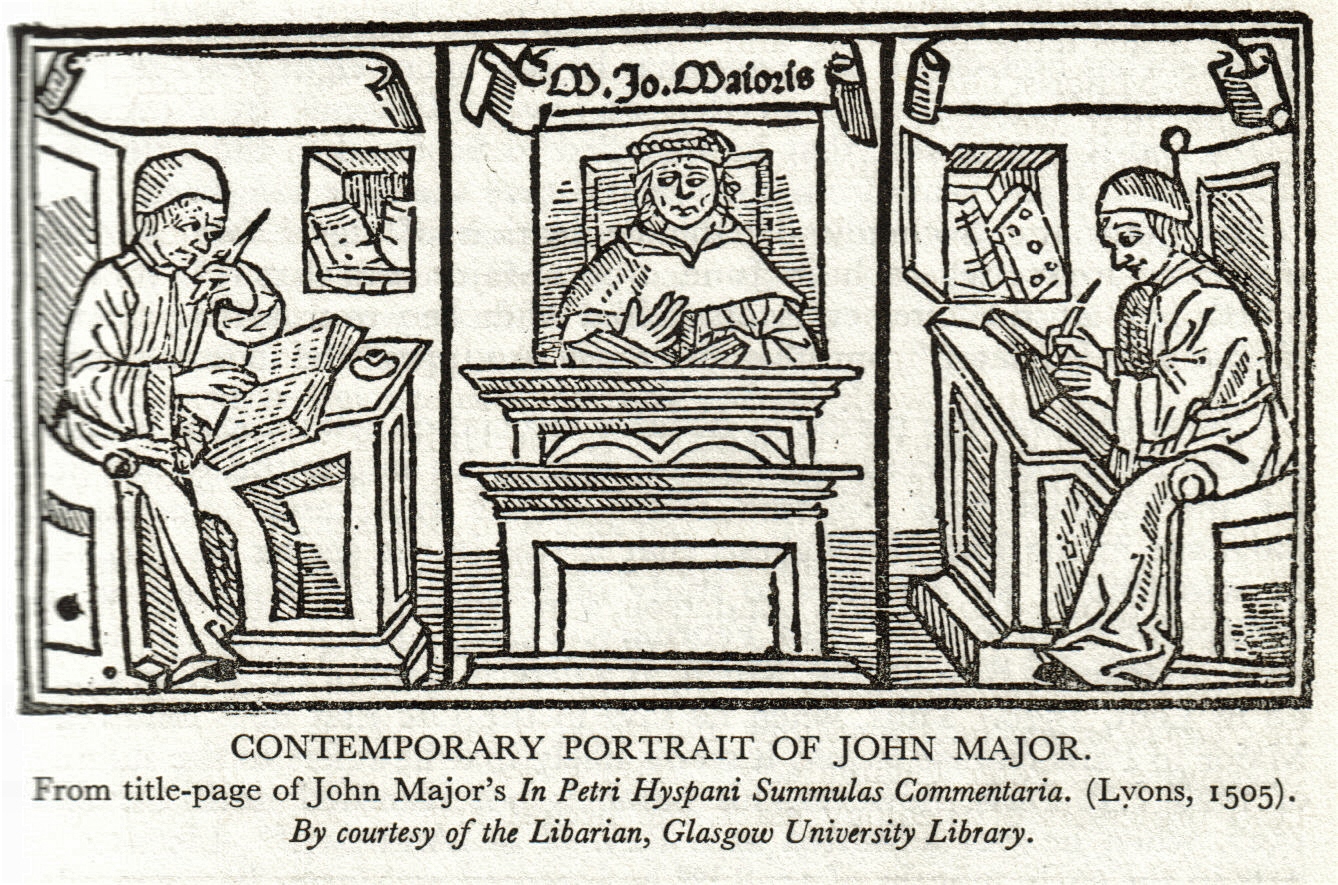John Major

Scottish Mathematician John Major (1467-1550) worked in Paris and St Andrews teaching logic and theology. He studied at Cambridge for around a year before furthering his studies in France. He contributed to a range of fields, including ethics, metaphysics, theology, biblical commentary, history and (above all) logic, at which he especially excelled. Furthermore, he did considerable work in legal human rights granting human rights to the so-called “savages” conquered by the Spanish. His great intellectual drive is testified by the fact that he completed at least forty-six books within twenty years, despite struggling with a recurring illness.
Career
His reputation was founded upon the quality of his writings, many of which became textbooks for students in Paris and throughout Europe. The quality of his teaching also made him his name; he was described by a student as a ‘deeply knowledgeable man whose virtue is as great as his faith’. He was the principal of the University of Glasgow for five years, vicar of Dunlop (in Ayrshire) and a canon of the Chapel Royal in Stirling. He left Glasgow for the University of St Andrews, working as provost of St Salvator’s College from 1534 and was the dean of the Faculty of Theology at the University. Although he complained about the town’s bad beer, he did a lot of important work here: he sat on a committee for the revision of St Andrews form of examination, professionalised the administrative process, and lectured in arts and theology. John Knox, his student who became the foremost leader of the Scottish Reformation, called Major a man ‘whose word was held as an oracle on matters of religion’, showing how respected he was. He is best known today for his ‘History of Greater Britain, England and Scotland’ (published 1521). Due to being deeply interested in history, he developed its reputation as a respected discipline. He wrote that it was necessary to study so that: ‘You may learn not only the thing that was done but also how it ought to have been done’.
